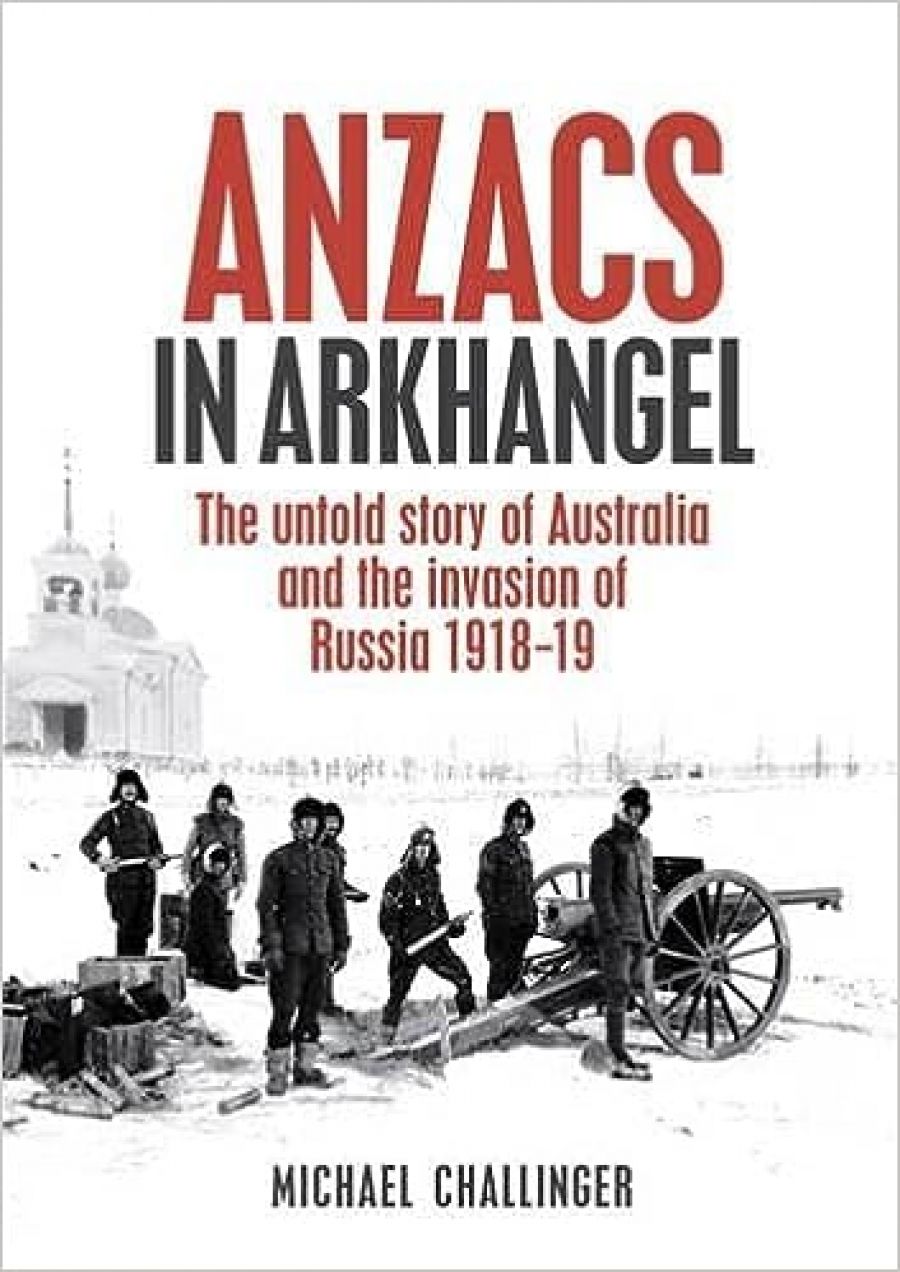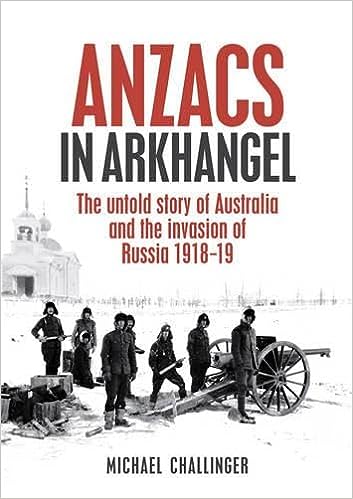
- Free Article: No
- Contents Category: History
- Review Article: Yes
- Article Title: Russian service
- Online Only: No
- Custom Highlight Text:
The Great War fractured the Europe of its day, and the ripples of the calamity it represented continued to be felt years after the formal hostilities ended in November 1918. Former combatants carried their experiences throughout the rest of their lives; some found it difficult to ‘let go’, while others who had seen little or nothing of the war at first hand felt compelled for various reasons to experience the untidy aftermath of conflict where this continued to play itself out. Russia, in the aftermath of the October Revolution, was one such venue.
- Book 1 Title: Anzacs In Arkhangel
- Book 1 Subtitle: The Untold Story of Australia and the Invasion of Russia 1918-19
- Book 1 Biblio: Hardie Grant Books, $35 pb, 285 pp
- Book 1 Cover Small (400 x 600):

The Australian dimension of the subject presents some interesting challenges. The official history makes virtually no mention of it (there is nothing in the British official history, either, though the series editor, James Edmonds, had wanted to write a volume on British involvement). The hundred or so Australians concerned were specially enlisted in British units for the duration of the deployment, and such records as were generated are in Britain and, until relatively recently, were generally unavailable for public access. Occasional short, popular pieces in the press aside, no one made much effort to gather the men’s accounts while they were still available to tell their stories. There is much that we have to infer, or guess, beginning with the numbers involved.
Challinger tells us that he wrote the book to recapture the story of these men – ‘who they were, why they came and what they did’ – and he provides as complete an account as we are likely to get. The forces involved in North Russia were varied and polyglot, and the fighting was dispersed and dislocated. In addition to the British advisory mission sent in 1918 and the larger force sent to relieve them the following year, there were French, Serbs, Italians, Canadians and Americans, as well as the local White Russian forces and further units of Russians raised, equipped and, until they mutinied, led by British officers and NCOs. The majority of the Australians were involved in combat along the railway and river fronts against units of the 7th Red Army, itself a somewhat ragtag and improvised force. Movement was by rail, river craft or on foot, distances were considerable, logistics was a problem, climate and terrain posed other problems of their own, and the loyalties of the local population were divided, at best. In hindsight, it was only ever going to end one way.
The author has talked to families, where he could find them, has mined the limited number of private records and official files now available and has set the whole in a broader context, both Western and Russian. His knowledge of the language and familiarity with the Russian context provides a useful additional dimension in seeking to make sense of the fragmentary and often confusing nature of what happened, and why. Since the collapse of the Soviet Union and the relatively greater openness that has followed, he has also made several trips to the sites in North Russia where the Australians lived and fought. The only Victoria Crosses awarded were both earned by Australians, one of whom was killed and now inhabits a lonely grave, since lost, somewhere in the vastness of the region south of Arkhangel. The author’s recent wanderings through this bleak and isolated landscape make for interesting reading.
The book’s antiquarian and human interest value are clear, but the intervention has wider significance than that. At the official level, the Soviet authorities never forgot the attempt to destroy their régime at its inception, though given the long and brutal record of Soviet intervention in eastern Europe and central Asia, we should not overstate the significance of this. In any case, the author can find few Russians who know, or care, about any of it now.
Rather, the tangled and messy Western intervention reminds us of how easy it is to become involved in the internal affairs of failed or failing states, sometimes for the best or most compelling of reasons, and of how difficult it usually is to realise the policy ambitions that prompted such action. Post-revolutionary and Civil War Russia was a more than usually challenging environment for outsiders. The grand schemes for destroying the Bolsheviks, sustaining various ‘White’, nationalist and democratic elements within the country and furthering Western aims in the aftermath of the Great War came to nothing. Those Russians who placed their faith in external intervention were abandoned to their fate, in their turn.
The Australians who saw service in Russia came back rather later than most of their surviving mates in the AIF. Challinger traces what he can of their postwar lives, some useful and fulfilling, some sad, occasionally tragic. Their Russian service was a small if exotic incident in their own lives and a footnote in a larger and compelling story.


Comments powered by CComment